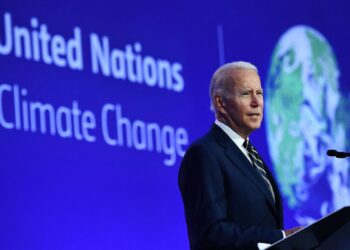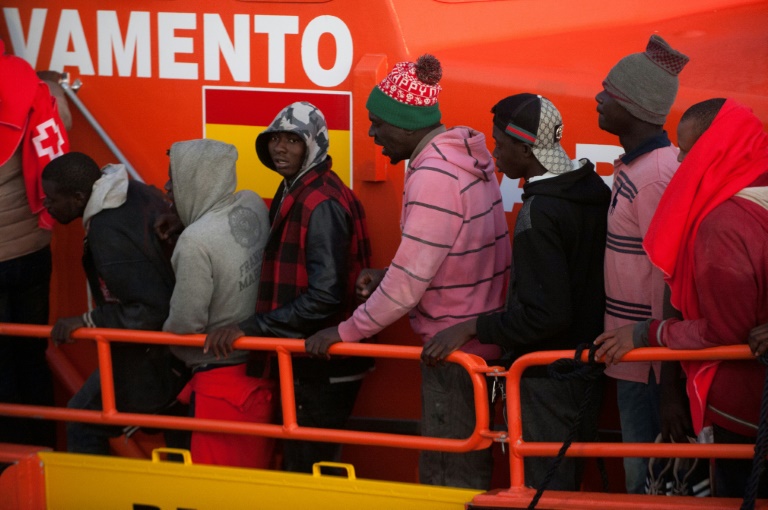From July 24 to 26, the U.S. State Department is holding a “Ministerial to Advance Religious Freedom,” a summit bringing together governments and civil society groups to discuss this important issue. Religious freedom advocates are excited to have such high-level access to international policymakers, but they should be cautious.
The Trump administration has made encouraging statements on international religious freedom but has so far done little. Some of their policies even actively undermine religious freedom, particularly for Muslims. Advocates should be wary of legitimating an administration that is not a true champion of international religious freedom by uncritically participating in this summit.
International Religious Freedom
The bipartisan and multifaith international religious freedom coalition came together in the 1990s. It helped secure the passage of the International Religious Freedom Act, creating the State Department’s office of international religious freedom, and a non-governmental watchdog body. Since then, various religious freedom advocacy groups have called on Presidents Bill Clinton, George W. Bush, and Barack Obama to make this issue a priority. They seemed to have achieved this goal with the current government: Vice President Mike Pence has said international religious freedom is a “priority” and many viewed the appointment of Sam Brownback as International Religious Freedom ambassador as a sign of commitment. However, U.S. promotion of international religious freedom has not been without its critics, who claim that U.S. efforts reflect evangelical Christian interests, misunderstand world politics, and even exacerbate social conflicts.
I have been a part of this debate for some time. I managed the Pew Research Center’s project on international religious freedom for several years and co-wrote a report on the connection between religious freedom and extremism for Georgetown University’s Berkley Center. I have also attempted to develop a progressive approach to the issue, writing a report on religious minorities in Iraq and critiquing the Muslim travel ban.
I know that religious freedom advocates care about helping people of faith – and those with no religion – around the world. They also believe that the best way to do this is to gain access to U.S. policymakers. As a progressive, I am at times uncomfortable with the conservative emphasis of their advocacy. Moreover, the near absence of critiques over Trump administration policies is frustrating, given their repeated attacks on the Obama administration for its supposed lack of commitment to international religious freedom.
I believe international religious freedom advocates are sincere but worry they prize institutional access too highly and tend to be forgiving of conservative politicians. That is why they need to be very cautious about participating in this summit for two reasons.
Trump’s Administration
First, Trump’s administration has done very little on international religious freedom. Its most significant actions have been the quick appointment of an ambassador and calling out Pakistan for its religious repression. That’s about it.
Middle Eastern Christian groups keep reporting issues receiving aid from the United States. Brownback traveled to Turkey to press for the release of a U.S. pastor being held there but had little impact as the pastor is still in jail. The White House has done nothing to press Russia on its poor religious freedom record, which most recently includes repression of Jehovah’s Witnesses. U.S. immigration policies have prevented Christians in other countries from escaping persecution.
Second, the Trump administration has shown worrisome signs of anti-Muslim sentiments, which clash with religious freedom. The travel ban – which is still, in effect, a ban on Muslims – discriminates against one religious group, limiting their religious freedom. Additionally, both Trump’s current National Security Adviser John Bolton and this adviser’s chief of staff have worked for anti-Muslim organizations. Even more concerning, Brownback reportedly pushed the United Kingdom over its arrest of a far-right anti-Muslim activist and has still not explained what this had to do with religious freedom.
Religious freedom advocates that uncritically participate in this summit will thus accomplish little to advance religious freedom. Since the current administration has implemented few concrete policies to promote international religious freedom, advocates participating in this summit will likely be wasting their time. Additionally, they may give the White House talking points it can use to deflect criticism of its inaction.
More importantly, religious freedom advocates may undermine their cause. The Trump administration’s willingness to target Muslims and tolerate anti-Muslim views clashes with the ideal of religious freedom. Religious freedom advocates’ participation in this event will allow the White House to claim it does protect religious freedom despite its problematic policies. Additionally, it may make advocates even more hesitant to criticize the government as they hope to maintain access to policymakers.
I understand that religious freedom advocates will want to attend this summit, however, to advance their cause. There are a few ways they can still avoid tainting this issue. Use this summit to push the administration on its policies. Demand them to take concrete steps to actually help Middle Eastern Christians while also acting on Muslim persecution in countries like Myanmar. Additionally, make it clear that participation in this summit does not mean you excuse or agree with the administration’s tolerance of anti-Muslim views. Even better, use the summit to condemn policies like the Muslim ban openly. And repeatedly question Brownback on why he is defending an anti-Muslim activist.
Religious freedom advocates’ muted criticism of the Trump administration, and this administration’s efforts to present itself as a champion on this issue, run the risk of turning this ecumenical issue into a partisan and sectarian one. The upcoming Ministerial to Advance Religious Freedom could well decide the future of international religious freedom; everyone attending has a responsibility to avoid its corruption.
Disclaimer: The views and opinions expressed here are those of the author and do not necessarily reflect the editorial position of The Globe Post.




















